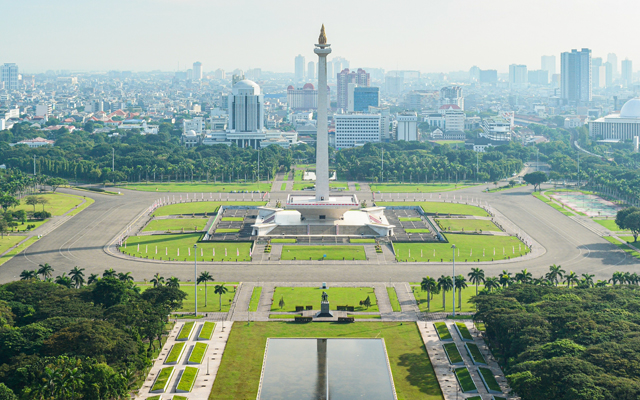Indonesia’s business event sector, especially hotels, is bracing for impact as the government implements a US$18.9 billion spending cut this fiscal year.
The reduction in government-funded business travel and meetings is expected to significantly dampen demand, placing further pressure on an industry already struggling to recover.

Since the start of his term in October 2024, president Prabowo Subianto has signalled his intention to streamline budgets. He has formalised this commitment, issuing a presidential instruction mandating ministries and regional leaders to reduce expenditures and prioritise efficiency. Key measures include a 50 per cent reduction in travel expenses, cuts to spending on ceremonies, meetings, seminars, and focus group discussions, and restrictions on non-essential items like decorations and banners.
In response, Maulana Yusran, secretary-general of the Indonesian Hotel and Restaurant Association, warned that these cuts could reduce hotel revenues due to lower demand for meeting packages and room bookings. “The decline in occupancy is expected to directly affect the revenue of hotels and restaurants,” he said.
According to data from Colliers Indonesia, the policy has accelerated the slowdown in hotel performance across Greater Jakarta, with January showing a 10 to 12 per cent year-on-year decline in occupancy. In Surabaya, the decline began when the budget cut plan was announced.
In November 2024, Surabaya’s AOR (average occupancy rate) fell by 6.2 per cent and ADR (average daily rate) decreased by 4.3 per cent, marking a shift from the usual month-on-month increases of around four per cent for AOR and two per cent for ADR.
Satria Wei, director of hospitality services at Colliers Indonesia, noted that if the policy remains in place, hotels in first- and second-tier regions will face even steeper declines. “Unlike Jakarta, which is a business hub, these areas are highly dependent on government bookings,” he explained.
Agreeing with Satria, Yusran highlighted that the government sector contributes as much as 40 to 60 per cent to hotel and restaurant revenues in some regions outside Jakarta. In Eastern Indonesia, the government segment can account for up to 70 per cent of the business.
“If this policy continues, some regions may experience conditions worse than during the pandemic,” said Yusran.
While some three- and four-star hotels have explored new markets and revenue streams, according to Satria, these efforts are unable to fully compensate for the losses as the government sector remains a crucial source of business.
Major PCOs in Indonesia – such as Pacto Convex and Royalindo Expodata – do not foresee any immediate impact on their businesses.
Reza Abdullah, president director of Royalindo Expoduta said that the absence of regional or international government events this year does not mean that Indonesia would not host big events like ASEAN-related meetings or other programmes that involve heads of states.
“I think it’s simply a matter of reduced extravagance in decorations and performances. The core facilities and services, such as venues, accommodations, and transportation, will maintain their high standards,” he said.





















